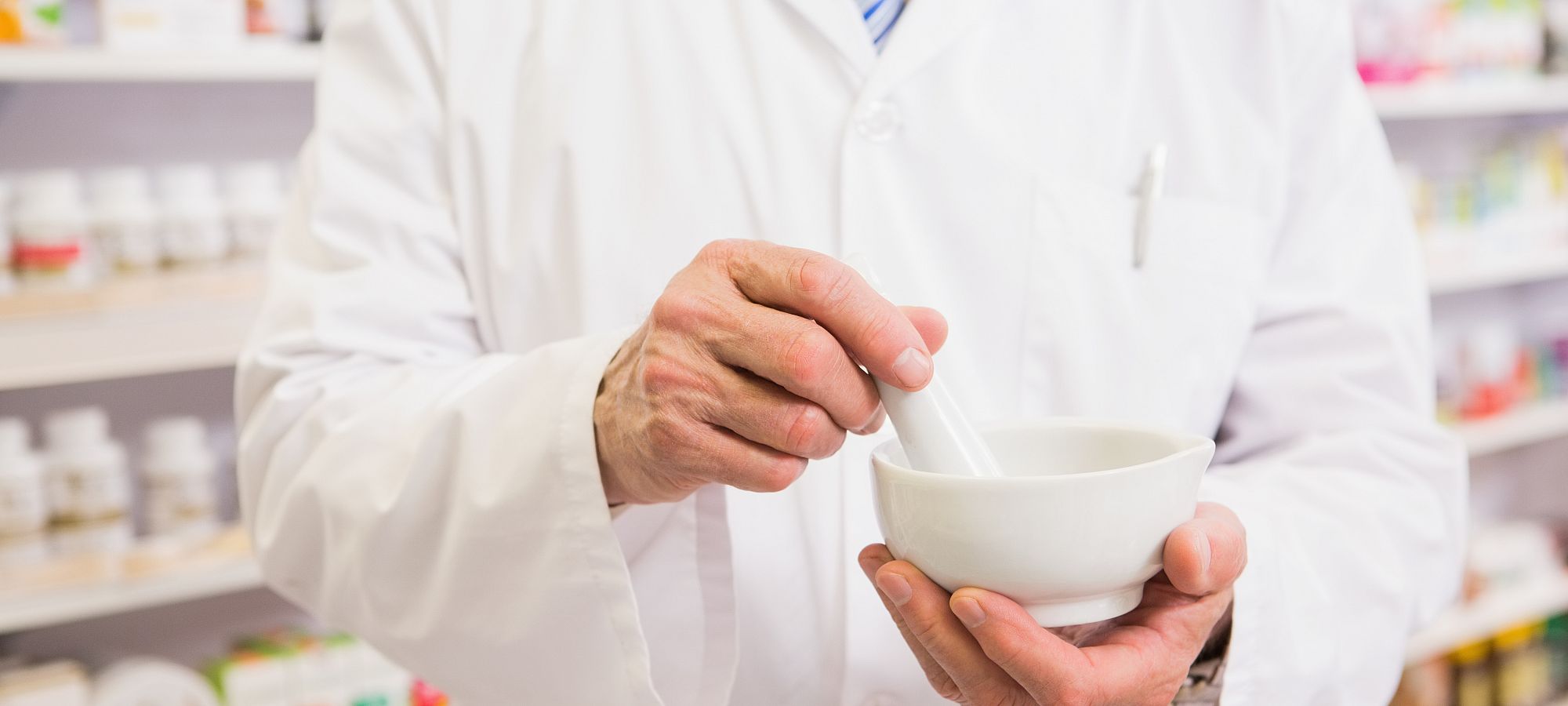
Frequently asked questions about compounded medications
May 28, 2019
As a compounding pharmacy in Kelowna, we receive plenty of questions about compounded medications — and with good reason! Medicinal compounding is not as commonly used as it was before pharmaceuticals became mass-produced, but it can still be an extremely helpful technique in many situations.
Here are some frequently asked questions about compounding. If you have additional questions that aren’t covered on this list, please contact the team at Lakeside Pharmacy — we would be happy to help!
What is medicinal compounding?
Compounding refers to the process of creating personalized medications to meet the specific needs of a patient. Typically, this is done with a customized prescription from a doctor, and a compounding pharmacy will then combine the necessary ingredients to create the medication.
It may also be referred to as pharmaceutical compounding or drug compounding.
What forms of medications can be compounded?
Compounding can be used to create a great variety of medications including creams, ointments, gels, lozenges, capsules, tablets, suspensions, tinctures, suppositories, transdermals, balms, and more.
Why is compounding needed?
Medication compounding can be extremely useful in situations where a patient is unable to use
commercialized pharmaceuticals to treat their ailment, which can occur for multiple reasons:
- They may have an allergy or sensitivity to non-active ingredients that are commonly used in pharmaceuticals such as lactose, gelatin, aspartame, dyes, oils, and more.
- They may need a customized dosage or strength of medication that is not commercially available.
- To avoid side effects of commercialized drugs such as drowsiness or stomach issues.
- They may need to take the medication in a different form — for example, some patients are unable to take oral medication and prefer topical treatments such as gels or creams.
- Compounded medications can also be made in different forms or flavours for children or pets.
- The ideal medication for the patient’s ailment may simply not exist commercially, or they may have exhausted all other options.
- Compounding can also be used if a commercialized medication runs out of stock.
Does every pharmacy offer compounding services?
While all pharmacists undergo compounding training, some choose to complete additional training and offer more robust compounding services than others.
With tighter regulations being put in place, certain equipment is required for more advanced types of compounding, which not every pharmacy chooses to offer. While most pharmacies offer at least some basic compounding services, you will need to seek out a pharmacy that specializes in compounding for certain medications.
Are compounded prescriptions safe? How are they regulated?
There is a certain level of risk associated with any medication, and it’s always important to consult your physician and work with a reputable pharmacist.
Commercial drugs must be reviewed and approved by Health Canada before they are made available to the public. Because compounded medications are made right in the pharmacy, they cannot be tested by Health Canada, however all of the individual ingredients used in the compounded medication will have been approved.
The National Association of Pharmacy Regulatory Authorities (NAPRA) has guidelines for pharmacy compounding in Canada to ensure the safety of pharmacists and patients. Recently, more rigorous guidelines have been created and are expected to be adopted in British Columbia very soon.
If you are seeking compounded medications, it’s best to work with a pharmacy that specializes in compounding, and is willing to discuss all of the details of the medication and work directly with your doctor to determine the best course of action.
How can I tell if my medication was compounded?
If you’re receiving compounded medication, it’s likely the result of a conversation that you had with your doctor. Your pharmacist should also go over the details of your medication with you and be able to answer any questions that you have. If you’re still unsure, don’t hesitate to ask!
What is the difference between sterile and non-sterile compounding?
There are two types of compounding — sterile and non-sterile.
Sterile compounding must be done in an environment that is completely free of potentially harmful microorganisms like bacteria or viruses. These types of medications are typically administered directly into the eyes or intravenously (in an IV), and so it is important to take additional safety precautions and follow rigorous facility and equipment standards.
Non-sterile compounding must be done in an environment that is clean, but not necessarily free from bacteria, viruses or other microorganisms. Non-sterile compounding is used to create the more common medications, such as ones that are applied topically or taken orally.
Are compounded drugs covered by insurance?
Many compounds are covered with a doctor’s prescription, depending on your insurance or benefits plan.
However, it should be noted that direct billing is not available for compounded medications as the insurance companies need details about the compound, such as the different ingredients used. Patients need to submit their receipts for reimbursements after the fact.
More questions about compounds?
If you have questions about compounding, or are searching for a compounding pharmacy in Kelowna, please don’t hesitate to contact us. We would be happy to assist you in whatever way we can!
